Publications
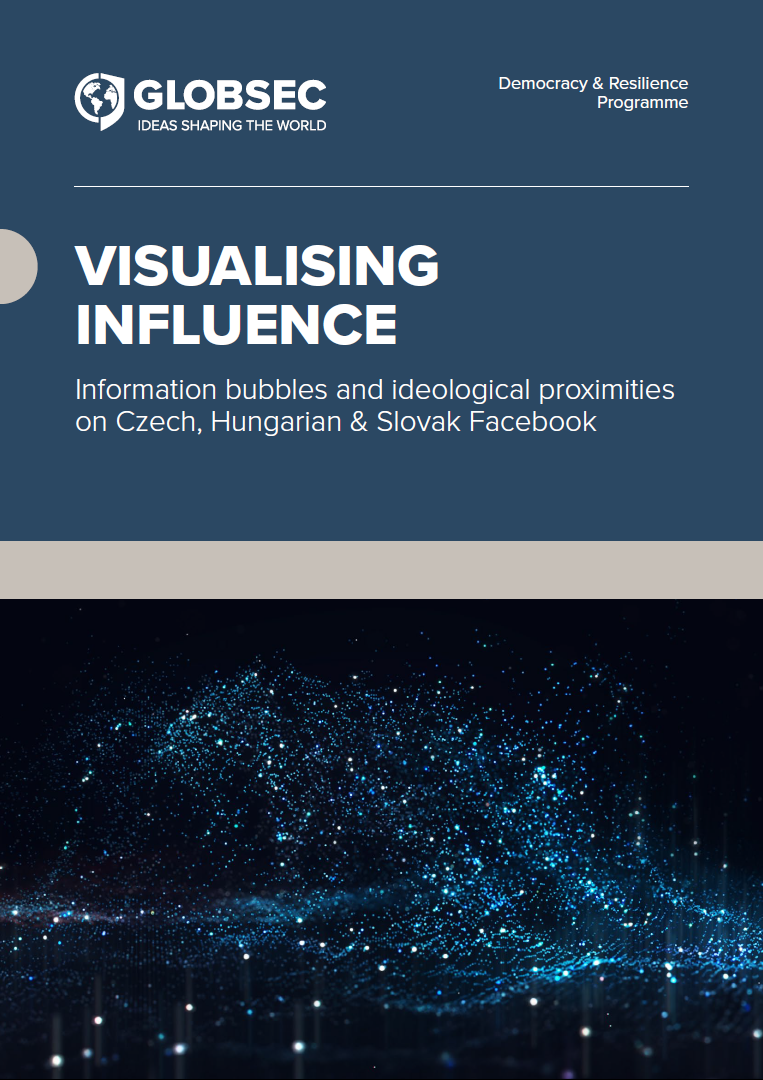
Information Resilience Program // Jonáš Syrovátka / 18 Nov 2020
Visualising influence Information bubbles and ideological proximities on Czech, Hungarian & Slovak Facebook
Disinformation continues to be one of the greatest challenges the Western democracies currently face, testing their integrity, cohesion and resilience. With social networks representing an important medium when it comes to their spreading, it is important to understand how exactly disinformation manifests itself when it comes to the way it circulates on the network and influences its users.
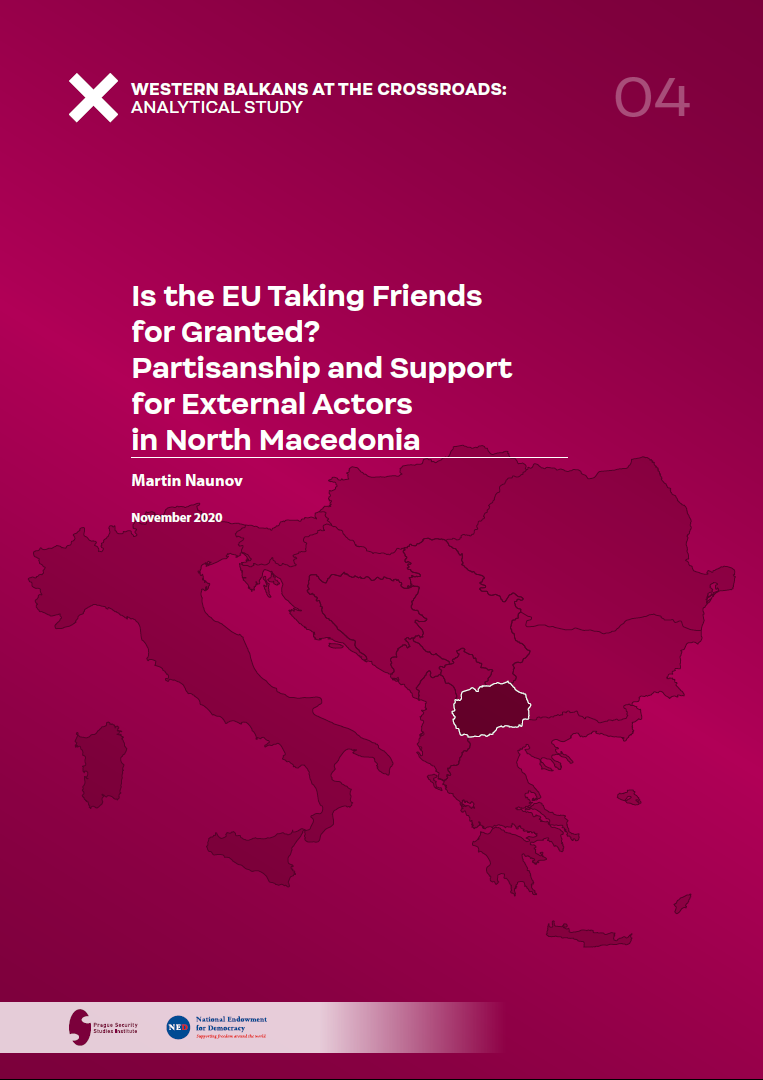
Information Resilience Program // Martin Naunov / 9 Nov 2020
Is the EU Taking Friends for Granted? Partisanship and Support for External Actors in North Macedonia
This paper explores the “East vs. West” debate in North Macedonia and challenges the often shared notion that the majority of North Macedonians are united in favoring the country's Euro-Atlantic integration. By analyzing survey data, the study shows that ethnic Macedonians are significantly split on the geopolitical direction their country should take, and that partisanship is an important factor in this divide. This polarization is at least in part attributable to cueing from party elites, despite the claim by all major parties that they are pro-Western.
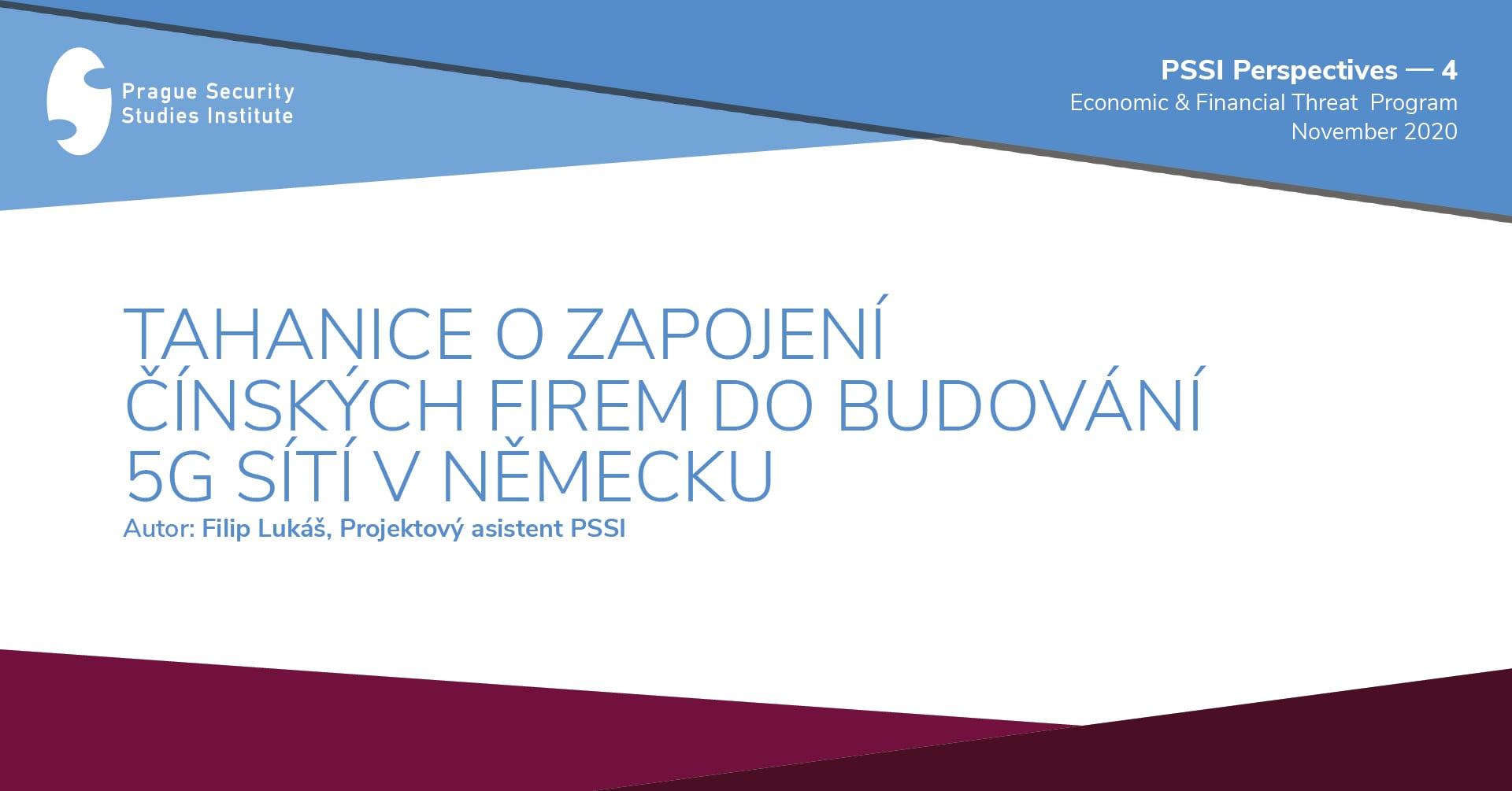
Economic & Financial Statecraft Program // Filip Lukáš / 6 Nov 2020
PSSI Perspectives #4 - Fray over Chinese Companies as 5G Suppliers to Germany
This new addition to the PSSI Perspectives goes over the 5G technology supplier selection in Germany. Unlike many other European countries, Germany has not yet decided whether it would allow Chinese companies to build the 5G networks. It is a pressing issue dividing the government coalition that should be resolved this month of November. This Perspective presents the current regulation, key actors and their standing on the issue.
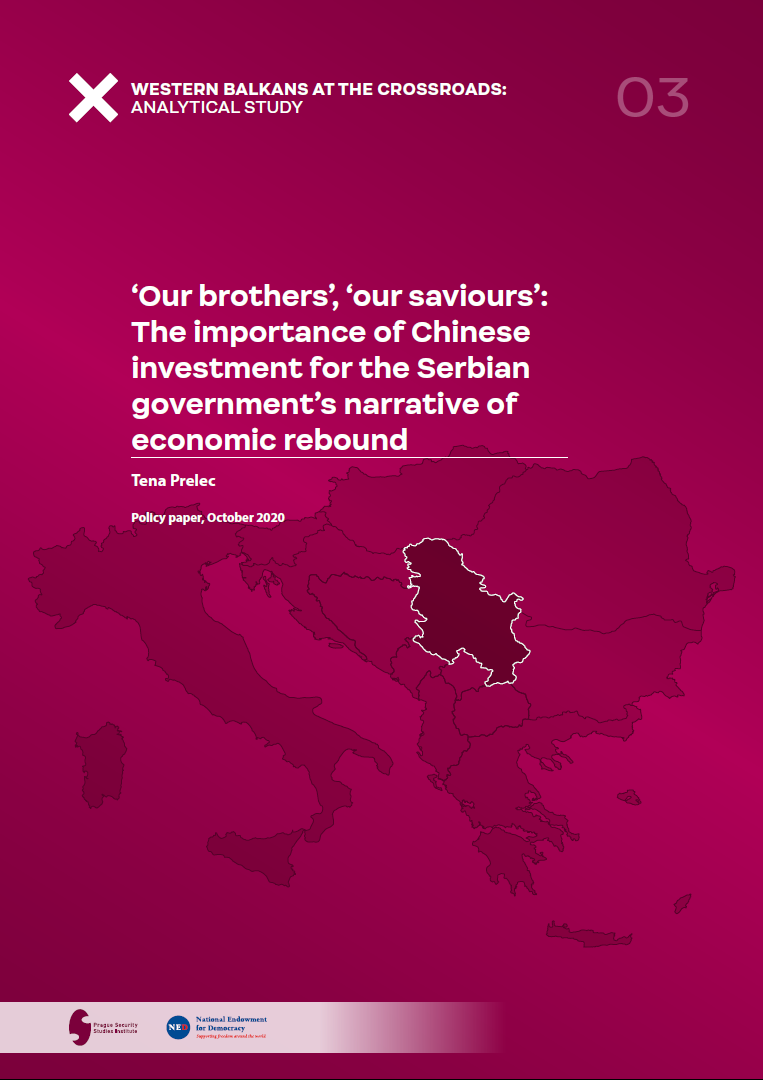
Information Resilience Program // Tena Prelec / 29 Oct 2020
‘Our brothers’, ‘our saviours’: The importance of Chinese investment for the Serbian government’s narrative of economic rebound
The study analyses how the ruling party in Serbia has used the country’s increasing economic cooperation with non-Western powers to promote its own ‘winning’ narrative. The author brings new insights into how the Serbian leadership has used the topic of economic renaissance in relation to a narrative depicting economic salvation by foreign friends coming to the rescue to further its political power. It is shown that this role, initially played by the United Arab Emirates, was assumed by China in the second part of the 2010s.
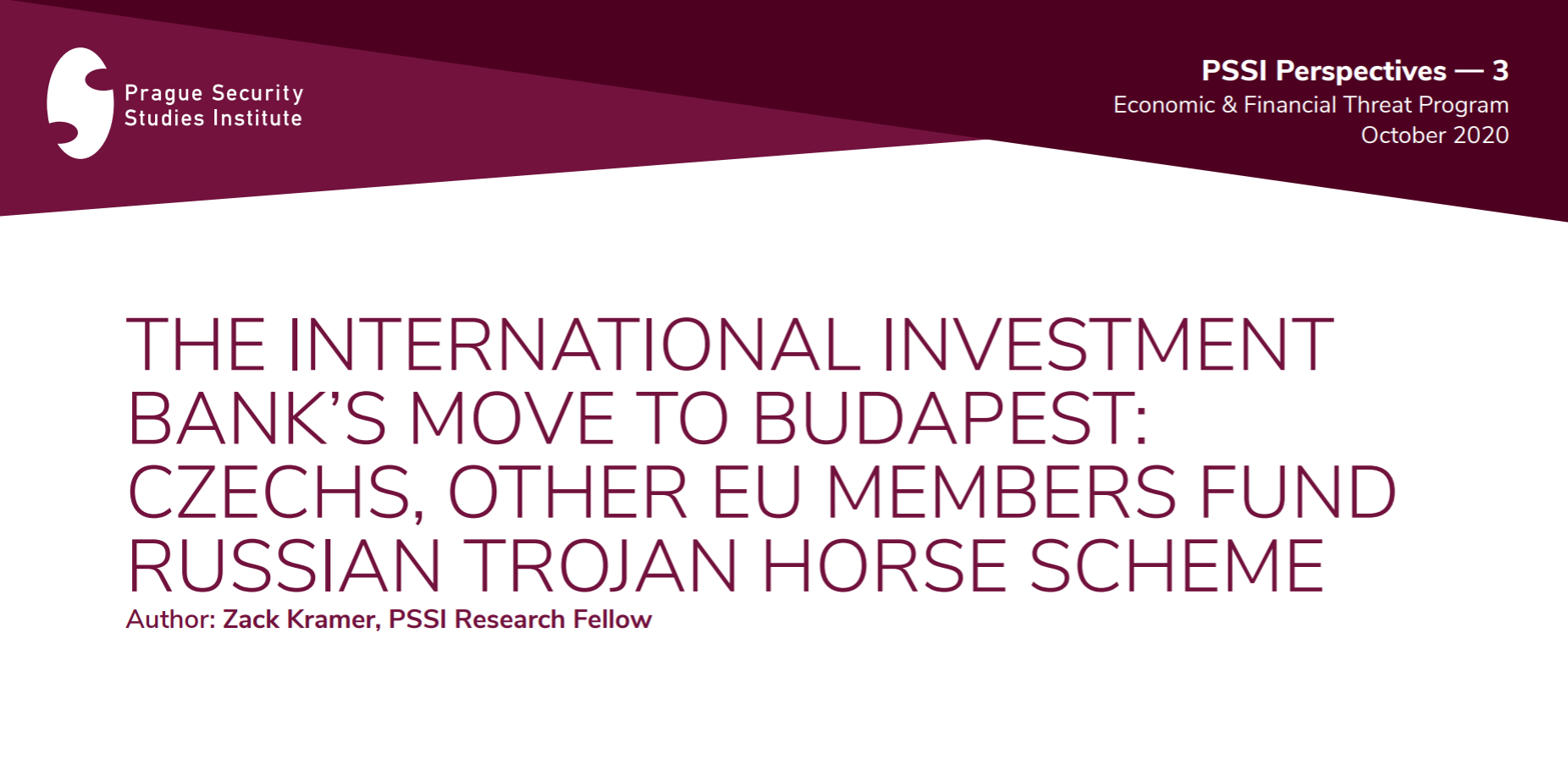
Economic & Financial Statecraft Program // Zack Kramer / 22 Oct 2020
PSSI Perspectives #3 - International Investment Bank Report
The Prague Security Studies Institute continues its PSSI Perspectives series of regular short memos on select security-related topics.
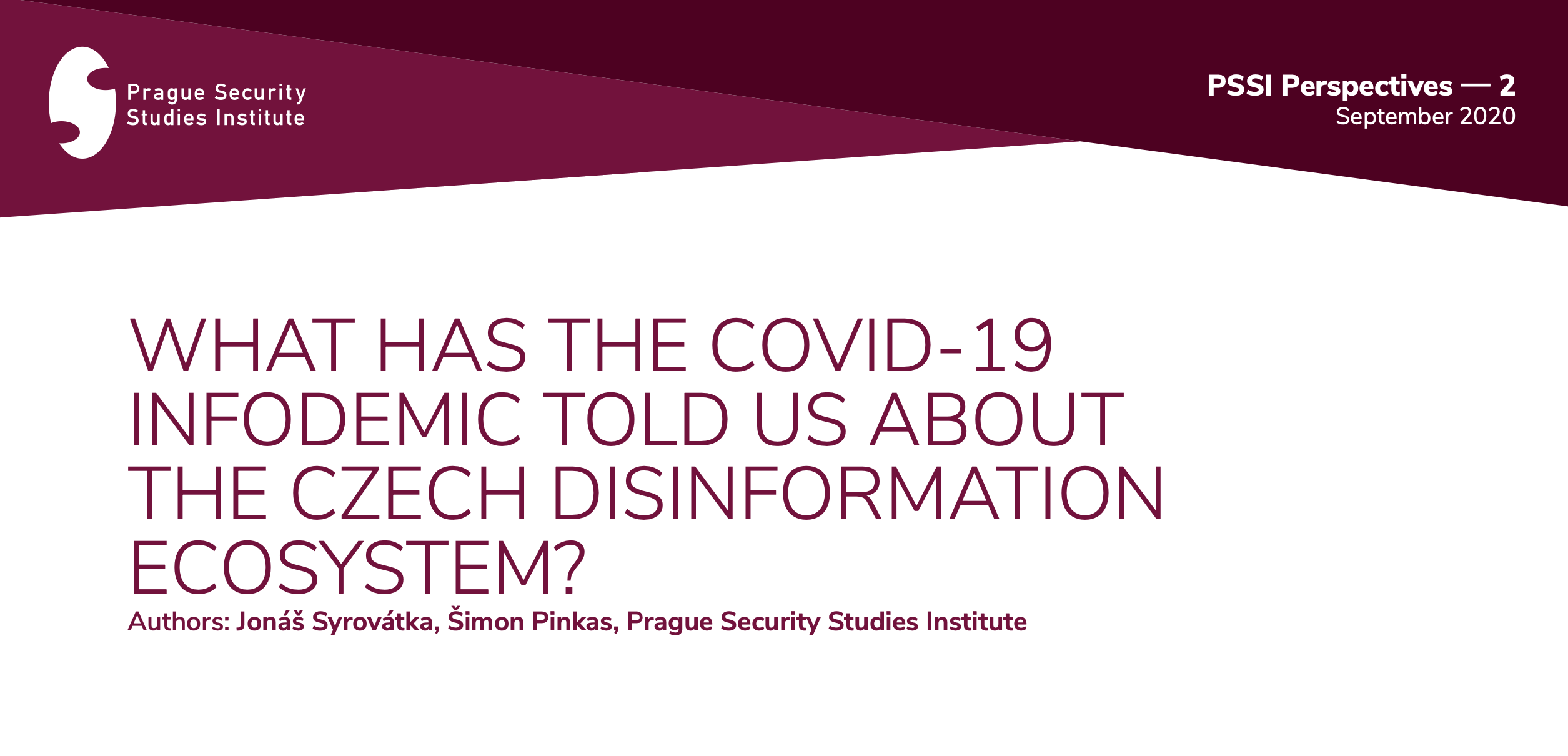
Information Resilience Program // Jonáš Syrovátka, Šimon Pinkas, Prague Security Studies Institut / 2 Oct 2020
PSSI Perspectives #2 - Infodemic and Disinformation
The Prague Security Studies Institute continues its PSSI Perspectives, regular short memos on select security-related topics.

Space Security Program // Jana Robinson / 10 Sep 2020
Arctic Space Challenge for NATO Emerging from China’s Economic and Financial Assertiveness
Dr. Jana Robinson’s article “Arctic Space Challenge for NATO Emerging from China’s Economic and Financial Assertiveness” was published in the 30th edition of the Journal of the Joint Air Power Competence Centre.
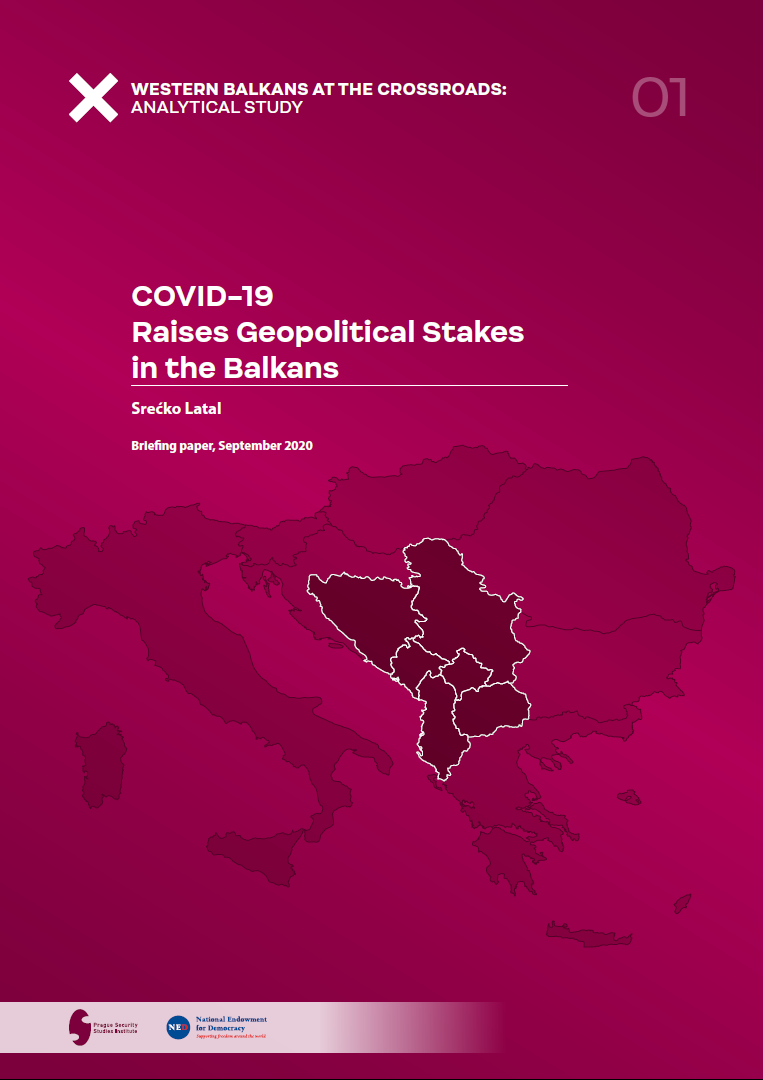
Information Resilience Program // Srećko Latal / 1 Sep 2020
Covid-19 Raises Geopolitical Stakes in the Balkans
The paper assesses the impact of COVID-19 on different external influences, which have already been steadily increasing in recent years, in the six Western Balkan countries. It offers insights into different forms and levels of engagement by Russia, China, Turkey as well as the US and the EU, establishing a better understanding of their agendas and strategies, and also providing data for future research on and analyses of this topic.
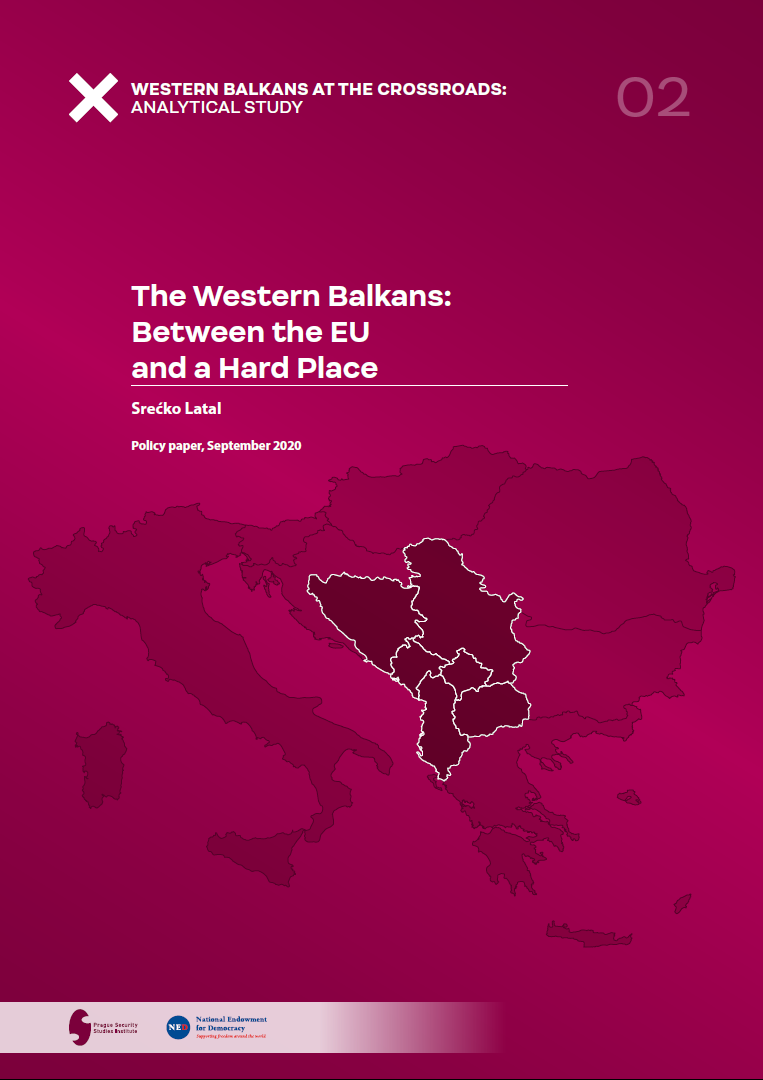
Information Resilience Program // Srećko Latal / 1 Sep 2020
The Western Balkans: Between the EU and a Hard Place
The paper identifies and analyses opportunities and challenges, which the EU is facing in the region as it tries to regain its leverage there. It starts from the oft-repeated premise that of all foreign actors, only the EU has the capacity to gradually stabilize and normalize the Balkans, examines the roots of the acute misunderstanding and miscommunication between EU and Balkan officials and outlines possible recommendations that could help the EU in tackling Balkan challenges.
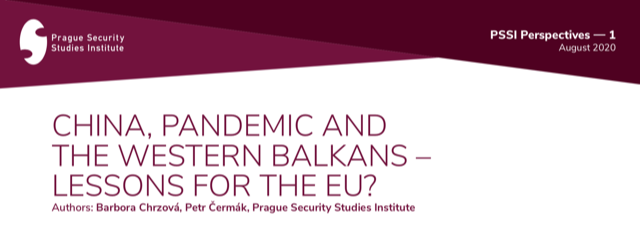
Information Resilience Program // Barbora Chrzová, Petr Čermák, Prague Security Studies Institute / 31 Aug 2020
PSSI Perspectives #1 - China in the Western Balkans
The Prague Security Studies Institute introduces PSSI Perspectives. These will be regular short memos on select security-related topics, including breaking developments affecting Czech and regional security, Chinese and Russian business transactions or projects of strategic and/or security concern, and the attraction of U.S. and European capital and investments by corporate “bad actors” of adversary states.